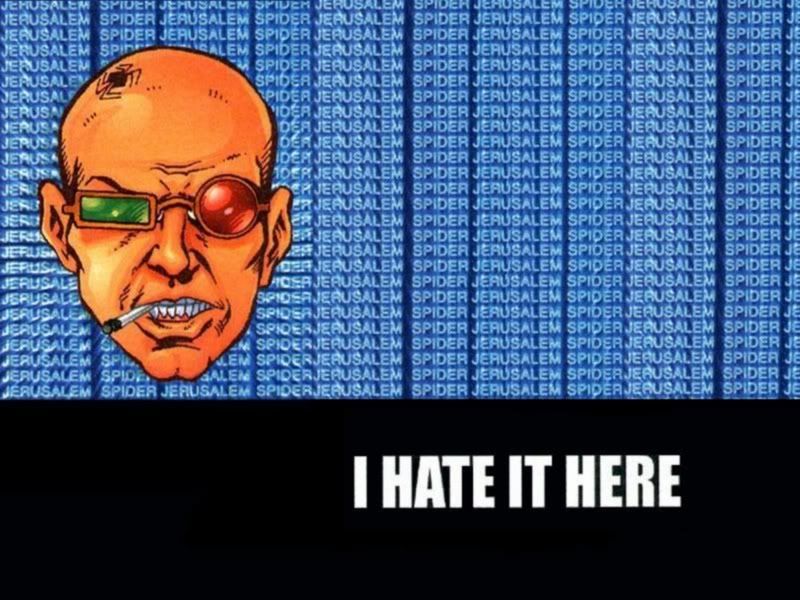The potential end to world hunger????
Meat, milk from cloned animals OK'd
By Karen Kaplan, Los Angeles Times December 24, 2006
LOS ANGELES -- A long-awaited study by US scientists has concluded that meat and milk from cloned animals and their offspring are safe to eat and drink and should be allowed to enter the food supply without any special labeling. The finding is a strong signal that the Food and Drug Administration will endorse the use of cloning technology for cattle, goats, and pigs when it publishes a key safety assessment intended to clear the way for formal approval of the products. That assessment is expected this week.
"All of the studies indicate that the composition of meat and milk from clones is within the compositional ranges of meat and milk consumed in the US," the FDA scientists concluded in a report published in the Jan. 1 issue of the journal Theriogenology, which focuses on animal reproduction.
The study, however, prompted a sharp reaction from food safety advocates.
The FDA "has been trying to foist this bad science on us for several years," said Andrew Kimbrell, executive director of the nonprofit Center for Food Safety in Washington. "When there is so much concern among so many Americans, this is really a rush to judgment."
Many ranchers and dairy producers have already cloned animals for meat and milk production, but a voluntary moratorium initiated about five years ago by the FDA has largely kept them and their offspring out of grocery stores and restaurants.
However, ranchers say there is no doubt that some of the animals taken to slaughterhouses in the past couple of years have been fathered by clones.
"There's been lots and lots of them that went into the food chain," said Larry Coleman, who raises limousin cattle in Charlo, Mont., and has made five clones of his prize bull, named First Down. He estimated that at least 10 of their offspring have wound up on dinner tables.
Since Dolly the sheep was cloned in 1996, agricultural scientists have imagined a time when they could dispense with the uncertainties of conventional breeding and make exact copies of their best animals. Cows were cloned in 1998 and pigs followed in 2000.
Consumers greeted the news with a combination of amazement and revulsion.
Cloning involves removing the nucleus from a donor egg and replacing it with DNA from a prized animal. If all goes well, a tiny electric shock induces the egg to grow into a genetic copy of the original animal. Scientists often refer to clones as identical twins born at a different time.
The FDA sees cloning as a natural extension of the livestock reproductive technologies -- such as artificial insemination and in vitro fertilization -- that have become routine, said spokesman Doug Arbesfeld.
Though cloning is expensive -- Coleman paid $60,000 to clone First Down -- producers have embraced it for the efficiencies it can bring to a farm or ranch. If a particular bull consistently produces strong offspring or a dairy cow is an unusually prolific milk producer, those advantages can be multiplied with clones But a study released this month by the Pew Initiative on Food and Biotechnology found that 64 percent of Americans are uncomfortable with animal cloning and that 43 percent believe food from clones is unsafe.
Safety isn't the only concern among consumers. Carol Tucker Foreman, director of the Food Policy Institute at the Consumer Federation of America, based in Washington, said the primary issue is that the food should be labeled so consumers can avoid products derived from clones if they wish.
"I should have freedom not to spend my money and not to eat products that offend me," she said. "Some people only drink free trade coffee. Others only choose organic food. Others choose halal or kosher food. This product, which causes great discomfort to a great number of people, goes on the market with no labeling that enables me to make a choice."
The FDA scientists who wrote the paper, Larisa Rudenko and John C. Matheson, concluded there was no basis for flagging the meat and milk products or for treating them differently than other food products.
"The US food safety system is designed to screen meat and milk for hazards, regardless of the means by which the animals were derived," they wrote. "There is no science-based reason to apply additional safeguards."
The paper relies on dozens of studies from around the world, many of which examined genetic and health problems in cloned animals and the risks to surrogate mothers that carry cloned embryos to term.
The scientists also analyzed 13 studies on the composition of meat and milk from clones and their offspring. Vitamins, minerals, proteins, fat, and other content showed no "nutritionally or toxicologically important differences," they concluded.
Skeptics remain unconvinced. Kimbrell, of the Center for Food Safety, said too few animals have been cloned to conclude that they are safe to eat. He also said more independent research is needed.
Senator Dianne Feinstein, Democrat of California, and six other senators sent a letter recently to Health and Human Services Secretary Mike Leavitt, whose department includes the FDA, asking that he require a more thorough review of the available scientific data.
By Karen Kaplan, Los Angeles Times December 24, 2006
LOS ANGELES -- A long-awaited study by US scientists has concluded that meat and milk from cloned animals and their offspring are safe to eat and drink and should be allowed to enter the food supply without any special labeling. The finding is a strong signal that the Food and Drug Administration will endorse the use of cloning technology for cattle, goats, and pigs when it publishes a key safety assessment intended to clear the way for formal approval of the products. That assessment is expected this week.
"All of the studies indicate that the composition of meat and milk from clones is within the compositional ranges of meat and milk consumed in the US," the FDA scientists concluded in a report published in the Jan. 1 issue of the journal Theriogenology, which focuses on animal reproduction.
The study, however, prompted a sharp reaction from food safety advocates.
The FDA "has been trying to foist this bad science on us for several years," said Andrew Kimbrell, executive director of the nonprofit Center for Food Safety in Washington. "When there is so much concern among so many Americans, this is really a rush to judgment."
Many ranchers and dairy producers have already cloned animals for meat and milk production, but a voluntary moratorium initiated about five years ago by the FDA has largely kept them and their offspring out of grocery stores and restaurants.
However, ranchers say there is no doubt that some of the animals taken to slaughterhouses in the past couple of years have been fathered by clones.
"There's been lots and lots of them that went into the food chain," said Larry Coleman, who raises limousin cattle in Charlo, Mont., and has made five clones of his prize bull, named First Down. He estimated that at least 10 of their offspring have wound up on dinner tables.
Since Dolly the sheep was cloned in 1996, agricultural scientists have imagined a time when they could dispense with the uncertainties of conventional breeding and make exact copies of their best animals. Cows were cloned in 1998 and pigs followed in 2000.
Consumers greeted the news with a combination of amazement and revulsion.
Cloning involves removing the nucleus from a donor egg and replacing it with DNA from a prized animal. If all goes well, a tiny electric shock induces the egg to grow into a genetic copy of the original animal. Scientists often refer to clones as identical twins born at a different time.
The FDA sees cloning as a natural extension of the livestock reproductive technologies -- such as artificial insemination and in vitro fertilization -- that have become routine, said spokesman Doug Arbesfeld.
Though cloning is expensive -- Coleman paid $60,000 to clone First Down -- producers have embraced it for the efficiencies it can bring to a farm or ranch. If a particular bull consistently produces strong offspring or a dairy cow is an unusually prolific milk producer, those advantages can be multiplied with clones But a study released this month by the Pew Initiative on Food and Biotechnology found that 64 percent of Americans are uncomfortable with animal cloning and that 43 percent believe food from clones is unsafe.
Safety isn't the only concern among consumers. Carol Tucker Foreman, director of the Food Policy Institute at the Consumer Federation of America, based in Washington, said the primary issue is that the food should be labeled so consumers can avoid products derived from clones if they wish.
"I should have freedom not to spend my money and not to eat products that offend me," she said. "Some people only drink free trade coffee. Others only choose organic food. Others choose halal or kosher food. This product, which causes great discomfort to a great number of people, goes on the market with no labeling that enables me to make a choice."
The FDA scientists who wrote the paper, Larisa Rudenko and John C. Matheson, concluded there was no basis for flagging the meat and milk products or for treating them differently than other food products.
"The US food safety system is designed to screen meat and milk for hazards, regardless of the means by which the animals were derived," they wrote. "There is no science-based reason to apply additional safeguards."
The paper relies on dozens of studies from around the world, many of which examined genetic and health problems in cloned animals and the risks to surrogate mothers that carry cloned embryos to term.
The scientists also analyzed 13 studies on the composition of meat and milk from clones and their offspring. Vitamins, minerals, proteins, fat, and other content showed no "nutritionally or toxicologically important differences," they concluded.
Skeptics remain unconvinced. Kimbrell, of the Center for Food Safety, said too few animals have been cloned to conclude that they are safe to eat. He also said more independent research is needed.
Senator Dianne Feinstein, Democrat of California, and six other senators sent a letter recently to Health and Human Services Secretary Mike Leavitt, whose department includes the FDA, asking that he require a more thorough review of the available scientific data.




0 Comments:
Post a Comment
<< Home